- Home
- Daphne Du Maurier
The Breaking Point Page 2
The Breaking Point Read online
Page 2
His wife looked up at the sky, low-clouded, opaque, and blessedly, for him, a gust of wind shivered her too thin coat and she put up her hand to hold the spring hat.
‘I think I will,’ she said, and then with doubt, ‘Are you sure you haven’t a stitch? You look pale.’
‘No, I’m all right,’ he replied. ‘I’ll walk faster alone.’
Then, seeing at that moment a taxi approaching with its flag up, he hailed it, waving his stick, and said to her, ‘Jump in. No sense in catching cold.’ Before she could protest he had opened the door and given the address to the driver. There was no time to argue. He hustled her inside, and as it bore her away he saw her struggle with the closed window to call out something about not being late back and the Alhusons. He watched the taxi out of sight down the Embankment, and it was like watching a phase of life that had gone forever.
He turned away from the river and the Embankment, and, leaving all sound and sight of traffic behind him, plunged into the warren of narrow streets and squares which lay between him and the Fulham Road. He walked with no purpose but to lose identity, and to blot from present thought the ritual of the Sunday which imprisoned him.
The idea of escape had never come to him before. It was as though something had clicked in his brain when his wife made the remark about the Alhusons. ‘Remind me to telephone when we get home. It’s their turn to come to us.’ The drowning man who sees the pattern of his life pass by as the sea engulfs him could at last be understood. The ring at the front door, the cheerful voices of the Alhusons, the drinks set out on the sideboard, the standing about for a moment and then the sitting down - these things became only pieces of the tapestry that was the whole of his life-imprisonment, beginning daily with the drawing-back of the curtains and early morning tea, the opening of the newspaper, breakfast eaten in the small dining-room with the gas-fire burning blue (turned low because of waste), the journey by Underground to the City, the passing hours of methodical office work, the return by Underground, unfolding an evening paper in the crowd which hemmed him in, the laying down of hat and coat and umbrella, the sound of television from the drawing-room blending, perhaps, with the voice of his wife talking on the phone. And it was winter, or it was summer, or it was spring, or it was autumn, because with the changing seasons the covers of the chairs and sofa in the drawing-room were cleaned and replaced by others, or the trees in the square outside were in leaf or bare.
‘It’s their turn to come to us,’ and the Alhusons, grimacing and jumping on their string, came and bowed and disappeared, and the hosts who had received them became guests in their turn, jiggling and smirking, the dancing couples set to partners in an old-time measure.
Now suddenly, with the pause by Albert Bridge and Edna’s remark, time had ceased; or rather, it had continued in the same way for her, for the Alhusons answering the telephone, for the other partners in the dance; but for him everything had changed. He was aware of a sense of power within. He was in control. His was the master-hand that set the puppets jiggling. And Edna, poor Edna, speeding home in the taxi to a predestined role of putting out the drinks, patting cushions, shaking salted almonds from a tin, Edna had no conception of how he had stepped out of bondage into a new dimension.
The apathy of Sunday lay upon the streets. Houses were closed, withdrawn.
‘They don’t know,’ he thought, ‘those people inside, how one gesture of mine, now, at this minute, might alter their world. A knock on the door, and someone answers - a woman yawning, an old man in carpet slippers, a child sent by its parents in irritation; and according to what I will, what I decide, their whole future will be decided. Faces smashed in. Sudden murder. Theft. Fire.’ It was as simple as that.
He looked at his watch. Half-past three. He decided to work on a system of numbers. He would walk down three more streets, and then, depending upon the name of the third street in which he found himself, and how many letters it contained, choose the number of his destination.
He walked briskly, aware of mounting interest. No cheating, he told himself. Block of flats or United Dairies, it was all one. It turned out that the third street was a long one, flanked on either side by drab Victorian villas which had been pretentious some fifty years ago, and now, let out as flats or lodgings, had lost caste. The name was Boulting Street. Eight letters meant Number 8. He crossed over confidently, searching the front-doors, undaunted by the steep flight of stone steps leading to every villa, the unpainted gates, the lowering basements, the air of poverty and decay which presented such a contrast to the houses in his own small Regency square, with their bright front-doors and window-boxes.
Number 8 proved no different from its fellows. The gate was even shabbier, perhaps, the curtains at the long, ugly ground-floor window more bleakly lace. A child of about three, a boy, sat on the top step. white-faced, blank-eyed, tied in some strange fashion to the mud-scraper so that he could not move. The front door was ajar.
James Fenton mounted the steps and looked for the bell.There was a scrap of paper pasted across it with the words ‘Out of Order’. Beneath it was an old-fashioned bell-pull, fastened with string. It would be a matter of seconds, of course, to unravel the knotted strap binding the child, carry him off under his arm down the steps, and then dispose of him according to mood or fancy. But violence did not seem to be indicated just yet: it was not what he wanted, for the feeling of power within demanded a longer term of freedom.
He pulled at the bell. The faint tinkle sounded down the dark hall. The child stared up at him, unmoved. Fenton turned away from the door and looked out on the street, at the plane tree coming into leaf on the pavement edge, the brown bark patchy yellow, a black cat crouching at its foot biting a wounded paw; and he savoured the waiting moment as delicious because of its uncertainty.
He heard the door open wider behind him and a woman’s voice, foreign in intonation, ask, ‘What can I do for you?’
Fenton took off his hat. The impulse was strong within him to say, ‘I have come to strangle you. You and your child. I bear you no malice whatever. It just happens that I am the instrument of fate sent for this purpose.’ Instead, he smiled. The woman was pallid, like the child on the steps, with the same expressionless eyes, the same lank hair. Her age might have been anything from twenty to thirty-five. She was wearing a woollen cardigan too big for her, and her dark, bunched skirt, ankle-length, made her seem squat.
‘Do you let rooms?’ asked Fenton.
A light came into the dull eyes, an expression of hope. It was almost as if this was a question she had longed for and had believed would never come. But the gleam faded again immediately, and the blank stare returned.
‘The house isn’t mine,’ she said. ‘The landlord let rooms once, but they say it’s to be pulled down, with those on either side, to make room for flats.’
‘You mean,’ he pursued, ‘the landlord doesn’t let rooms any more?’
‘No,’ she said. ‘He told me it wouldn’t be worth it, not with the demolition order coming any day. He pays me a small sum to caretake until they pull the house down. I live in the basement.’
‘I see,’ he said.
It would seem that the conversation was at an end. Nevertheless Fenton continued to stand there. The girl or woman - for she could be either - looked past him to the child, bidding him to be quiet, though he hardly whimpered.
‘I suppose,’ said Fenton, ‘you couldn’t sublet one of the rooms in the basement to me? It could be a private arrangement between ourselves while you remain here.The landlord couldn’t object.’
He watched her make the effort to think. His suggestion, so unlikely, so surprising coming from someone of his appearance, was something she could not take in. Since surprise is the best form of attack, he seized his advantage. ‘I only need one room,’ he said quickly,‘for a few hours in the day. I shouldn’t be sleeping here.’
The effort to size him up was beyond her - the tweed suit, appropriate for London or the country, the trilby hat, the
walking-stick, the fresh-complexioned face, the forty-five to fifty years. He saw the dark eyes become wider and blanker still as they tried to reconcile his appearance with his unexpected request.
‘What would you want the room for?’ she asked doubtfully.
There was the crux. To murder you and the child, my dear, and dig up the floor, and bury you under the boards. But not yet.
‘It’s difficult to explain,’ he said briskly. ‘I’m a professional man. I have long hours. But there have been changes lately, and I must have a room where I can put in a few hours every day and be entirely alone. You’ve no idea how difficult it is to find the right spot. This seems to me ideal for the purpose.’ He glanced from the empty house down to the child, and smiled. ‘Your little boy, for instance. Just the right age. He’d give no trouble.’
A semblance of a smile passed across her face. ‘Oh, Johnnie is quiet enough,’ she said. ‘He sits there for hours, he wouldn’t interfere.’ Then the smile wavered, the doubt returned. ‘I don’t know what to say . . . We live in the kitchen, with the bedroom next to it. There is a room behind, where I have a few bits of furniture stored, but I don’t think you would like it. You see, it depends what you want to do . . .’
Her voice trailed away. Her apathy was just what he needed. He wondered if she slept very heavily, or was even drugged. Those dark shadows under the eyes suggested drugs. So much the better. And a foreigner too. There were too many of them in the country.
‘If you would only show me the room, I should know at once,’ he said.
Surprisingly she turned, and led the way down the narrow, dingy hall. Switching on a light above a basement stair, murmuring a continual apology the while, she took Fenton below. This had been, of course, the original servants’ quarters of the Victorian villa. The kitchen, scullery and pantry had now become the woman’s living-room, kitchenette and bedroom, and in their transformation had increased in squalor.The ugly pipes, the useless boiler, the old range, might once have had some pretension to efficiency, with fresh white paint on the pipes and the range polished. Even the dresser, still in position and stretching nearly the full width of one wall, would have been in keeping some fifty years ago, with polished brass saucepans and a patterned dinner-service, while an overalled cook, bustling about with arms befloured, called orders to a minion in the scullery. Now the dirty cream paint hung in flakes, the worn linoleum was torn, and the dresser was bare save for odds and ends bearing no relation to its original purpose - a battered wireless set with trailing aerial, piles of discarded magazines and newspapers, unfinished knitting, broken toys, pieces of cake, a toothbrush, and several pairs of shoes. The woman looked about her helplessly.
‘It’s not easy,’ she said, ‘with a child. One clears up all the time.’
It was evident that she never cleared, that she had given in, that the shambles he observed was her answer to life’s problems, but Fenton said nothing, only nodded politely, and smiled. He caught a glimpse of an unmade bed through a half-open door, bearing out his theory of the heavy sleeper - his ring at the bell must have disturbed her - but seeing his glance she shut the door hurriedly, and in a half-conscious effort to bring herself to order buttoned her cardigan and combed her hair with her fingers.
‘And the room you do not use?’ he asked.
‘Oh, yes,’ she replied, ‘yes, of course . . .’ vague and uncertain, as if she had forgotten her purpose in bringing him to the basement. She led the way back across the passage, past a coal cellar - useful, this, he thought - a lavatory with a child’s pot set in the open door and a torn Daily Mirror beside it, and so to a further room, the door of which was closed.
‘I don’t think it will do,’ she said sighing, already defeated. Indeed, it would not have done for anyone but himself, so full of power and purpose; for as she flung open the creaking door, and crossed the room to pull aside the strip of curtain made out of old wartime blackout material, the smell of damp hit him as forcibly as a sudden patch of fog beside the river, and with it the unmistakable odour of escaping gas. They sniffed in unison.
‘Yes, it’s bad,’ she said. ‘The men are supposed to come, but they never do.’
As she pulled the curtain to let in air the rod broke, the strip of material fell, and through a broken pane of the window jumped the black cat with the wounded paw which Fenton had noticed beneath the plane tree in front of the house. The woman shooed it ineffectually. The cat, used to its surroundings, slunk into a far corner, jumped on a packing-case and composed itself to sleep. Fenton and the woman looked about them.
‘This would do me very well,’ he said, hardly considering the dark walls, the odd L-shape of the room and the low ceiling. ‘Why, there’s even a garden,’ and he went to the window and looked out upon the patch of earth and stones - level with his head as he stood in the basement room - which had once been a strip of paved garden.
‘Yes,’ she said, ‘yes, there’s a garden,’ and she came beside him to stare at the desolation to which they both gave so false a name. Then with a little shrug she went on, ‘It’s quiet, as you see, but it doesn’t get much sun. It faces north.’
‘I like a room to face north,’ he said abstractedly, already seeing in his mind’s eye the narrow trench he would be able to dig for her body - no need to make it deep. Turning towards her, measuring the size of her, reckoning the length and breadth, he saw a glimmer of understanding come into her eye, and he quickly smiled to give her confidence.
‘Are you an artist?’ she said. ‘They like a north light, don’t they?’
His relief was tremendous. An artist. But of course. Here was the excuse he needed. Here was a way out of all difficulty.
‘I see you’ve guessed my secret,’ he answered slyly, and his laugh rang so true that it surprised even himself. He began to speak very rapidly. ‘Part-time only,’ he said. ‘That’s the reason I can only get away for certain hours. My mornings are tied down to business, but later in the day I’m a free man. Then my real work begins. It’s not just a casual hobby, it’s a passion. I intend to hold my own exhibition later in the year. So you understand how essential it is for me to find somewhere . . . like this.’
He waved his hand at the surroundings, which could offer no inducement to anyone but the cat. His confidence was infectious and disarmed the still doubtful, puzzled inquiry in her eyes.
‘Chelsea’s full of artists, isn’t it?’ she said. ‘At least they say so, I don’t know. But I thought studios had to be high up for getting the light?’
‘Not necessarily,’ he answered. ‘Those fads don’t affect me. And late in the day the light will have gone anyway. I suppose there is electricity?’
‘Yes . . .’ She moved to the door and touched a switch. A naked bulb from the ceiling glared through its dust.
‘Excellent,’ he said. ‘That’s all I shall need.’
He smiled down at the blank, unhappy face. The poor soul would be so much happier asleep. Like the cat. A kindness, really, to put her out of her misery.
‘Can I move in tomorrow?’ he asked.
Again the look of hope that he had noticed when he first stood at the front door inquiring for rooms, and then - was it embarrassment, just the faintest trace of discomfort, in her expression?
‘You haven’t asked about . . . the cost of the room,’ she said.
‘Whatever you care to charge,’ he replied, and waved his hand again to show that money was no object. She swallowed, evidently at a loss to know what to say, and then, a flush creeping into the pallid face, ventured, ‘It would be best if I said nothing to the landlord. I will say you are a friend. You could give me a pound or two in cash every week, what you think fair.’
She watched him anxiously. Certainly, he decided, there must be no third party interfering in any arrangement. It might defeat his plan.
‘I’ll give you five pounds in notes each week, starting today,’ he said.
He felt for his wallet and drew out the crisp, new notes. She put out a t
imid hand, and her eyes never left the notes as he counted them.
‘Not a word to the landlord,’ he said, ‘and if any questions are asked about your lodger say your cousin, an artist, has arrived for a visit.’
She looked up and for the first time smiled, as though his joking words, with the giving of the notes, somehow sealed a bond between them.
‘You don’t look like my cousin,’ she said, ‘nor much like the artists I have seen, either. What is your name?’
‘Sims,’ he said instantly, ‘Marcus Sims,’ and wondered why he had instinctively uttered the name of his wife’s father, a solicitor dead these many years, whom he had heartily disliked.
‘Thank you, Mr Sims,’ she said. ‘I’ll give your room a clean-up in the morning.’Then, as a first gesture towards this intention, she lifted the cat from the packing-case and shooed it through the window.
‘You will bring your things tomorrow afternoon?’ she asked.
‘My things?’ he repeated.
‘What you need for your work,’ she said. ‘Don’t you have paints and so on?’
‘Oh, yes . . . yes, naturally,’ he said, ‘yes, I must bring my gear.’ He glanced round the room again. But there was to be no question of butchery. No blood. No mess. The answer would be to stifle them both in sleep, the woman and her child. It was much the kindest way.
‘You won’t have far to go when you need tubes of paint,’ she said. ‘There are shops for artists in the King’s Road. I have passed them shopping. They have boards and easels in the window.’
He put his hand over his mouth to hide his smile. It was really touching how she had accepted him. It showed such trust, such confidence.
She led the way back into the passage, and so up the basement stair to the hall once more.
‘I’m so delighted,’ he said, ‘that we have come to this arrangement. To tell you the truth, I was getting desperate.’
She turned and smiled at him again over her shoulder. ‘So was I,’ she said. ‘If you hadn’t appeared . . . I don’t know what I might not have done.’

 Jamaica Inn
Jamaica Inn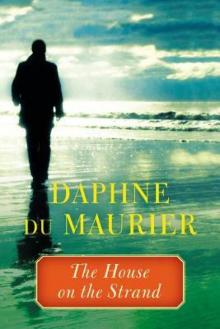 The House on the Strand
The House on the Strand I'll Never Be Young Again
I'll Never Be Young Again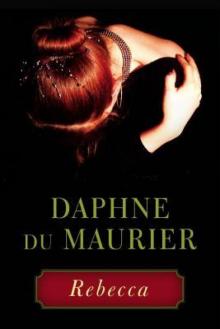 Rebecca
Rebecca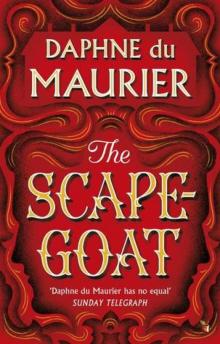 The Scapegoat
The Scapegoat The Birds and Other Stories
The Birds and Other Stories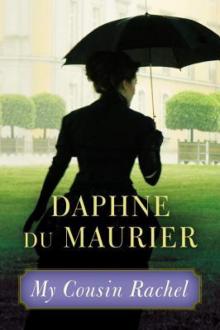 My Cousin Rachel
My Cousin Rachel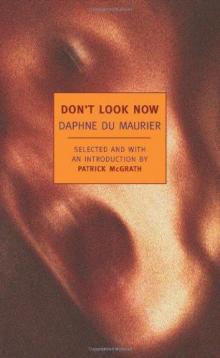 Don't Look Now
Don't Look Now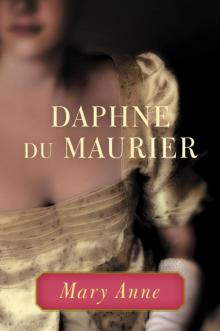 Mary Anne
Mary Anne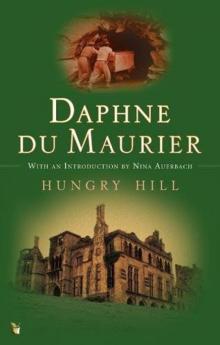 Hungry Hill
Hungry Hill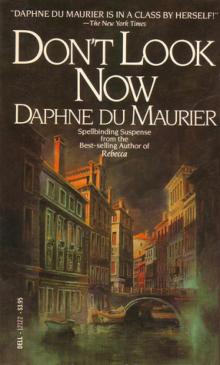 Don't Look Now and Other Stories
Don't Look Now and Other Stories The Loving Spirit
The Loving Spirit Rule Britannia
Rule Britannia The King's General
The King's General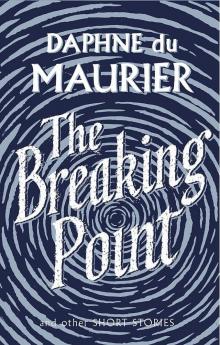 The Breaking Point: Short Stories
The Breaking Point: Short Stories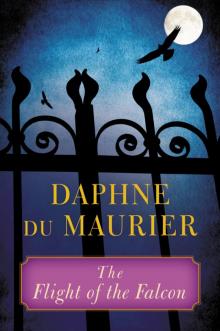 The Flight of the Falcon
The Flight of the Falcon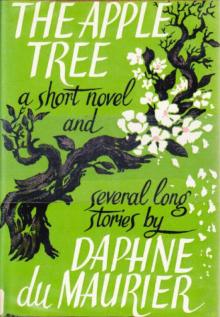 The Apple Tree: a short novel & several long stories
The Apple Tree: a short novel & several long stories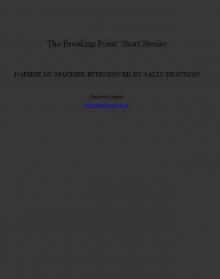 The Breaking Point
The Breaking Point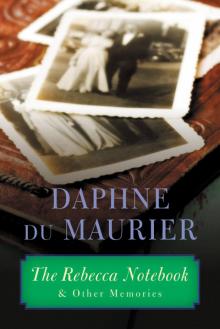 The Rebecca Notebook
The Rebecca Notebook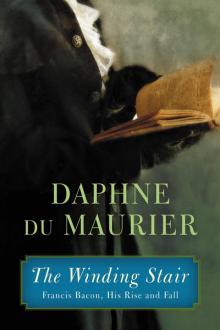 The Winding Stair: Francis Bacon, His Rise and Fall
The Winding Stair: Francis Bacon, His Rise and Fall Not After Midnight & Other Stories
Not After Midnight & Other Stories The Doll
The Doll The Apple Tree
The Apple Tree